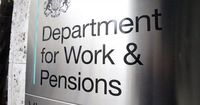Thousands of families relying on Universal Credit are set to see a significant increase in their monthly payments this year, as the government considers scrapping the controversial two-child benefit cap and has already implemented a 1.7% rise in benefit rates aligned with inflation. These changes could provide much-needed financial relief to households struggling to make ends meet amid ongoing economic pressures.
The two-child benefit cap, introduced by the Conservative government, currently limits parents to claiming Child Tax Credit and Universal Credit for only their first two children if born after April 2017. This means that families with three or more children born after this date cannot claim means-tested benefits for the additional children. The cap has been widely criticized for contributing to child poverty, with figures from the Department of Work and Pensions showing that about 1.6 million children live in households affected by the policy.
Removing this cap could lead to a substantial boost in Universal Credit payments for larger families. The child element of Universal Credit is currently £292.81 per child each month for children born after April 2017. For a family of four, lifting the cap could mean an additional £586 every month, a considerable increase that could ease financial burdens.
According to the Resolution Foundation, a think tank focused on economic policy, the two-child cap is expected to push the number of children living in poverty to 4.8 million by the next general election in 2029-30. Torsten Bell, the foundation's former chief executive and now a Labour Treasury minister, emphasized the impact of removing the cap, stating that such a move "would lift 470,000 children out of poverty." This underscores the potential social benefits of revising the policy.
Education Secretary Bridget Phillipson has hinted that the government is actively considering scrapping the two-child benefit cap, though she cautioned that the change "would cost a lot of money." This acknowledgment highlights the financial implications for the Treasury but also signals a possible policy shift aimed at addressing child poverty.
Meanwhile, Universal Credit payments have already seen an increase. On April 7, 2025, benefit payments rose by 1.7%, in line with the consumer price index (CPI) inflation rate for September 2024. However, due to the way Universal Credit assessments are structured, many claimants did not observe this increase until May or June.
Universal Credit is paid monthly and is based on the claimant's circumstances during their "assessment period," which begins on the day they make their claim. The new rates applied only after the first full one-month assessment period starting on or after April 7, 2025. Those whose assessment period began after this date saw their benefits increase as early as May 13, while others with earlier assessment periods must wait until mid-June for the boost.
The timing of the payment increase depends on the claimant's specific assessment period. For example, claimants with an assessment period from March 28 to April 27 will receive their payment increase on June 1, while those with periods ending as late as May 5 will see the increase on June 12.
The updated Universal Credit standard allowance rates for 2025-26 reflect modest increases across different claimant categories. Singles under 25 now receive £316.98 monthly, up from £311.68, and singles aged 25 or over receive £400.14, up from £393.45. Joint claimants both under 25 get £497.55, while joint claimants with one or both aged 25 or over receive £628.10. Additional elements for limited capability for work, child support, and carers have also risen.
For children, the first child born before April 6, 2017, attracts an extra £339 per month, while children born after this date or subsequent children receive £292.81. Disabled children receive additional support, with lower and higher rates at £158.76 and £495.87 respectively. Work allowances have also increased, with higher allowances for claimants without housing costs rising to £684 and lower allowances for those with housing costs increasing to £411. The carer's element, supporting those caring for severely disabled persons for at least 35 hours a week, has gone up to £201.68.
Beyond these direct payments, local councils across England have begun distributing additional support funded through the Household Support Fund (HSF) to assist those on benefits, including Universal Credit. For instance, Middlesbrough Council has started issuing payments of up to £120 to struggling households, providing a vital lifeline amid rising living costs.
Claimants are encouraged to use benefits calculators offered by charities such as Turn2Us and Entitledto to ensure they are receiving all the support they are eligible for. These tools can help individuals navigate the complex benefits system and maximize their entitlements.
The combination of the planned removal of the two-child benefit cap and the recent Universal Credit uprating marks a significant development in the UK’s social security landscape. While the government grapples with the fiscal cost of these measures, the potential to lift hundreds of thousands of children out of poverty presents a compelling argument for change. For many families, these adjustments could mean the difference between financial hardship and a more secure, stable home life.

